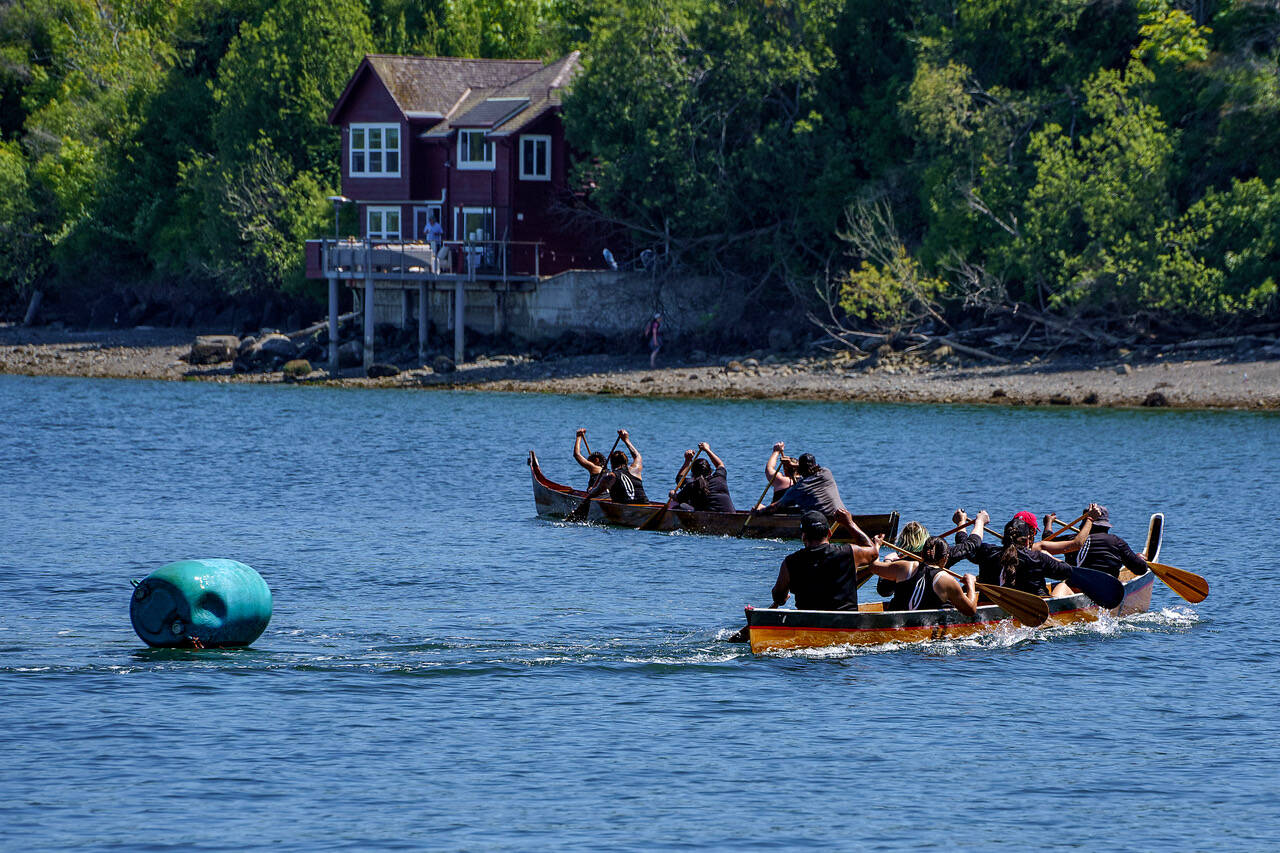Some new faces, voices and boats will weave into the old tradition of the Penn Cove Water Festival this year.
Saturday’s event will be announced by Tony Gladoosby of the Swinomish Tribe, co-owner of Beaver Tales Coffee, as well as Michael Vendiola, communications manager for the Swinomish Tribe. Tony and his wife, Michelle, will hold the grand opening of their new shop location on the Coupeville Wharf the day of the festival.
This year’s festival is dedicated to the Tsimshian Haayuuk Dancer matriarch, Doreen May Nathan, who passed away last year, and Roger Purdue, an artist of Tsimshian heritage who created the festival logos and the salmon and whale wheels on the wharf. This year will mark a decade since his passing.
Among the racing canoes, Central Whidbey Island Fire & Rescue will be showing off their new “super duper” rescue boat, said Gary Piazzon, festival board president.
The Penn Cove Water Festival is the only venue of the canoe racing circuit that isn’t on tribal land, Piazzon said, which is special to both Whidbey Islanders and the racers.
“Americans have baseball, now football of course, Canadians have hockey, the world plays soccer and Coast Salish people race canoes,” he said. “That’s their thing, to put things in perspective more how important this is.”
Whidbey is the ancestral home of the Lower Skagit and Swinomish tribes. The Lower Skagit migrated off the island to places like Tulalip, and the Swinomish Reservation was formed to the north near Anacortes.
“It’s good to see the original people in their traditional home and territory,” Piazzon said. “We will be honoring that at both opening ceremonies.”
The festival takes place where it originally started in the 1930s, which was a three-day affair drawing people from all over. After a hiatus caused by World War II, the new one-day festival was reborn in 1992.
It serves as an integral cultural bridge, said Lou Labombard, an indigenous storyteller, sharing how natives saw the world around them, not by ownership but by stewardship. The stories hold environmental themes, especially those that pertain specifically to Whidbey Island.
Labombard has entertained festival goers since the beginning of its new era, and he’s looked forward to it every year. Beyond canoe races, the festival offers traditional stories, music, dancing, games, art and food.
Saturday continues the tradition of giving loaves of bread to participants, “a great equalizer,” Labombard said. Vendors will share ancient traditions such as flint knapping, and the trip is worth it for the food alone.



